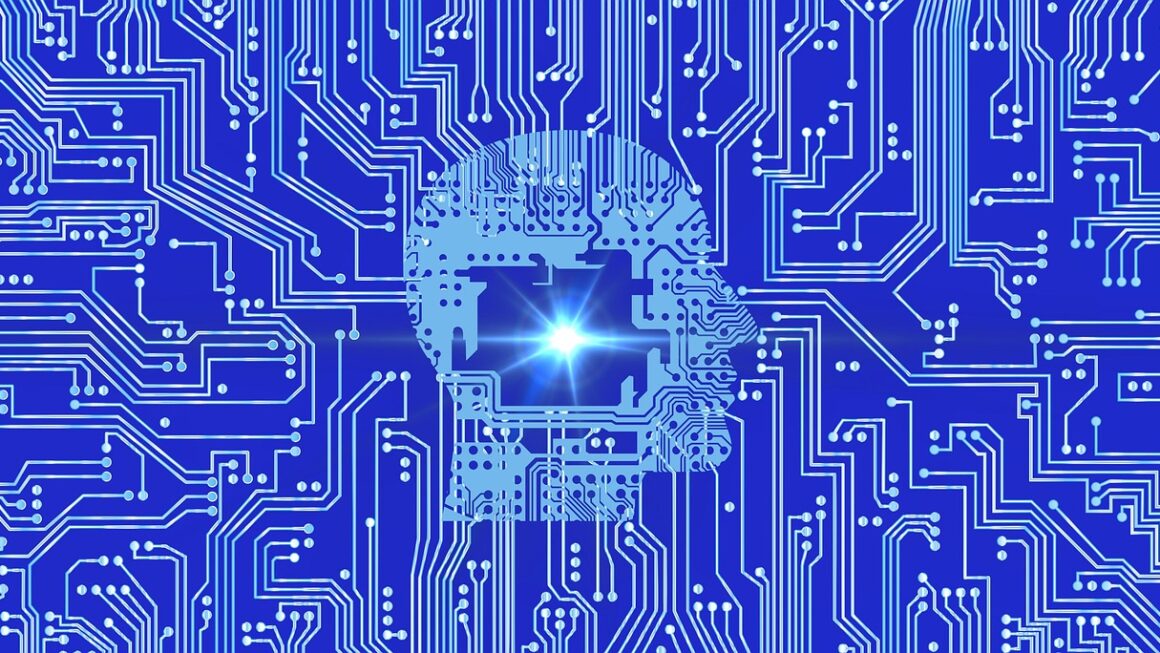Artificial intelligence (AI) is rapidly transforming our world, impacting everything from how we work and communicate to the products we use and the services we receive. Understanding AI, its capabilities, and its potential is no longer a futuristic concept, but a necessity for navigating the modern landscape. This comprehensive guide will delve into the core concepts of AI, explore its diverse applications, and offer insights into its future trajectory.
What is Artificial Intelligence?
Defining Artificial Intelligence
Artificial intelligence, at its core, refers to the ability of a computer or machine to mimic human intelligence. This includes tasks like learning, problem-solving, decision-making, and understanding natural language. It’s about creating systems that can perform tasks that typically require human intelligence.
- Mimicking Human Intelligence: Replicating human cognitive functions.
- Learning from Data: Improving performance through experience.
- Problem-Solving: Finding solutions to complex problems.
- Automation: Performing tasks without direct human intervention.
Types of Artificial Intelligence
AI is often categorized into different types based on its capabilities and functionality.
- Narrow or Weak AI: Designed for specific tasks. Examples include spam filters, recommendation systems, and image recognition software. This is the most prevalent type of AI today.
- General or Strong AI: Possesses the ability to understand, learn, and apply knowledge across a wide range of tasks, much like a human. General AI is still largely theoretical.
- Super AI: Hypothetical AI that surpasses human intelligence in all aspects, including creativity, problem-solving, and general wisdom. This is a subject of much debate and ethical consideration.
Key Components of AI
Several key components work together to create AI systems.
- Machine Learning (ML): Algorithms that allow computers to learn from data without explicit programming.
- Deep Learning (DL): A subset of machine learning that uses artificial neural networks with multiple layers to analyze data. Deep learning is particularly effective in tasks like image and speech recognition.
- Natural Language Processing (NLP): Enables computers to understand, interpret, and generate human language. This is crucial for applications like chatbots and language translation.
- Computer Vision: Allows computers to “see” and interpret images, enabling applications like facial recognition and object detection.
- Robotics: Combines AI with physical robots to automate tasks in industries like manufacturing and logistics.
Applications of Artificial Intelligence
AI in Business
AI is revolutionizing the business world, offering opportunities to improve efficiency, reduce costs, and enhance customer experiences.
- Customer Service: AI-powered chatbots provide instant customer support, answer frequently asked questions, and resolve simple issues. For instance, many e-commerce websites use chatbots to handle customer inquiries 24/7.
- Marketing and Sales: AI algorithms analyze customer data to personalize marketing campaigns, predict customer behavior, and improve sales conversion rates. Tools like HubSpot use AI to identify potential leads and automate marketing tasks.
- Supply Chain Management: AI optimizes supply chain operations by predicting demand, managing inventory, and improving logistics. Companies like Amazon use AI to streamline their vast logistics network.
- Fraud Detection: AI systems analyze financial transactions to identify and prevent fraudulent activity, protecting businesses and customers from financial losses.
AI in Healthcare
AI is transforming healthcare, offering the potential to improve diagnosis, treatment, and patient care.
- Diagnosis and Treatment: AI algorithms analyze medical images, such as X-rays and MRIs, to detect diseases early and accurately. AI can also help doctors personalize treatment plans based on individual patient needs.
- Drug Discovery: AI accelerates the drug discovery process by analyzing vast amounts of data to identify potential drug candidates and predict their effectiveness.
- Personalized Medicine: AI uses patient data to develop personalized treatment plans, taking into account factors like genetics, lifestyle, and medical history.
- Robotic Surgery: Robots assist surgeons in performing complex procedures with greater precision and control, leading to improved outcomes.
AI in Education
AI is enhancing the learning experience for students and improving the efficiency of educational institutions.
- Personalized Learning: AI adapts learning materials and teaching methods to individual student needs and learning styles.
- Automated Grading: AI automates the grading of assignments and tests, freeing up teachers’ time to focus on other tasks.
- Intelligent Tutoring Systems: AI-powered tutoring systems provide personalized feedback and guidance to students, helping them improve their understanding of various subjects.
- Administrative Tasks: AI automates administrative tasks, such as scheduling classes and managing student records, allowing educators to focus on teaching.
AI in Finance
AI is being widely adopted in the financial industry to enhance efficiency, improve decision-making, and reduce risk.
- Algorithmic Trading: AI algorithms analyze market data to make trading decisions in real-time, optimizing investment strategies and maximizing profits.
- Risk Management: AI identifies and assesses financial risks, helping institutions make informed decisions and mitigate potential losses.
- Customer Service: AI-powered chatbots provide customer support, answer financial questions, and resolve account issues.
- Fraud Detection: AI systems analyze financial transactions to detect and prevent fraudulent activity, protecting financial institutions and customers from fraud.
Benefits of Artificial Intelligence
Increased Efficiency and Productivity
AI automates repetitive tasks, freeing up human workers to focus on more complex and creative work, leading to increased efficiency and productivity.
- Automation of Repetitive Tasks: Reduces manual labor and speeds up processes.
- Improved Accuracy: Minimizes errors and improves the quality of work.
- 24/7 Availability: AI systems can operate continuously, providing round-the-clock support.
Enhanced Decision-Making
AI analyzes vast amounts of data to provide insights that can help businesses make better decisions.
- Data-Driven Insights: Provides actionable insights based on data analysis.
- Improved Forecasting: Predicts future trends and outcomes with greater accuracy.
- Reduced Bias: Minimizes human bias in decision-making.
Improved Customer Experience
AI personalizes customer interactions and provides instant support, leading to improved customer satisfaction.
- Personalized Interactions: Tailors interactions to individual customer needs.
- Instant Support: Provides quick and efficient customer service.
- Improved Customer Engagement: Enhances customer loyalty and retention.
Cost Reduction
AI automates tasks, reduces errors, and optimizes processes, leading to significant cost savings.
- Reduced Labor Costs: Automates tasks that would otherwise require human labor.
- Minimized Errors: Reduces the cost of correcting errors and rework.
- Optimized Processes: Improves efficiency and reduces waste.
Challenges and Considerations
Ethical Concerns
AI raises several ethical concerns, including bias, privacy, and job displacement.
- Bias in Algorithms: AI algorithms can perpetuate and amplify existing biases in data. It’s crucial to ensure that AI systems are trained on diverse and representative datasets.
- Privacy Issues: AI systems often collect and analyze vast amounts of personal data, raising concerns about privacy and security.
- Job Displacement: AI automation may lead to job losses in certain industries, requiring retraining and upskilling initiatives.
Data Requirements
AI systems require large amounts of data to train effectively, which can be a challenge for some organizations.
- Data Availability: Access to sufficient and relevant data is crucial for training AI models.
- Data Quality: The quality of data is essential for the accuracy and reliability of AI systems.
- Data Privacy: Protecting the privacy of data used to train AI models is paramount.
Implementation Challenges
Implementing AI solutions can be complex and require specialized expertise.
- Technical Expertise: Building and deploying AI systems requires specialized skills in areas like machine learning and data science.
- Integration with Existing Systems: Integrating AI solutions with existing IT infrastructure can be challenging.
- Change Management: Implementing AI requires significant organizational change and employee training.
Conclusion
Artificial intelligence is a powerful technology with the potential to transform industries and improve lives. By understanding the core concepts of AI, its diverse applications, and its associated challenges, we can harness its potential for good and navigate its ethical implications responsibly. As AI continues to evolve, staying informed and adaptable will be crucial for individuals and organizations alike. The future powered by AI is not just a possibility, it is rapidly becoming our present, and embracing its potential while mitigating its risks is essential for a successful and equitable future.




